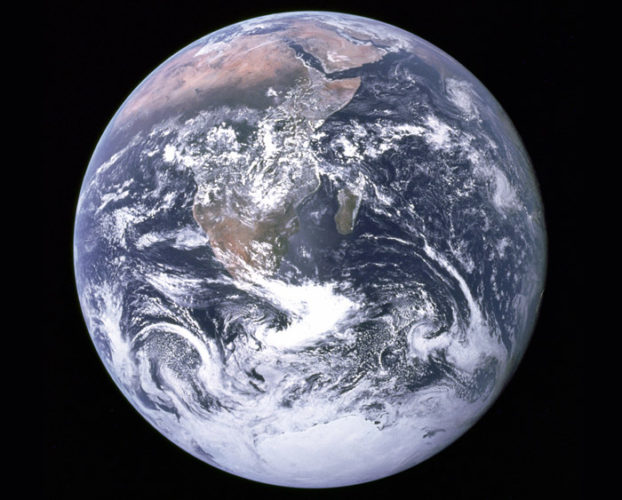Sandra Gibson in a follow up to Beauty and the Beast, her piece examining environmental grief, gives us some insight into how with hope, honesty and humility we can shift our paralysis into action and resilience.
The Doomsday Clock is the closest it has ever been to midnight: our planet is on fire, drowning, and asphyxiated. At the power end, the patriarchal paradigm, rooted in white supremacy, remains intact whilst the disempowered lose their homes and culture:
“We are people of the sea ice. And if there’s no more sea ice, how do we be people of the sea ice?”1
Having acknowledged that this is happening – less likely if we live in the house on the hill than if we are up to our nethers in filthy, swirling water – and feeling powerless and doom-laden, what can we do? Primary advice urges us to embrace our feelings of impotency, anger, grief and dread; accept that they are the right response, the natural response, the unstoppable response:
“Nobody can stop anyone else mourning. People say other people are trying to stop people from mourning. Nobody can stop you from grieving. Nobody can stop anyone from mourning anyone or anything.”2.
There must be a time to honour our grief, because what we love and grieve for is part of us and our values. And we must talk about it to others, so we may help one another. Ashlee Condo3 found solace in the wisdom of Inuit elders with whom she was working and advocates trusting the galvanising effect of grief and finding new rituals to mark it.
Then, find some hope. Instead of being a horrified spectator, act, but be prepared for a reaction. As George Monbiot said, “if defending life on Earth is extremist, we must own that label”. Informed that zero carbon by 2025 is unrealistic, Monbiot recommends optimism, “Be scientifically realistic; demand the politically impossible!” We can take to the streets and confront the system head-on but revolution is a messy business. We must be realistic and politically aware. Timothy Morton4 advocates a softly, softly approach (but there isn’t time, we shout) and quotes a commentator who said, “Proust destroys the aristocracy with remorseless gentleness,” and Emily Dickinson who wrote, “Tell all the truth but tell it slant… The truth must dazzle gradually/or every man divide”.
Another approach is to cultivate awareness of perspectives outside the dominant paradigm: new journalism about climate issues; narratives collected from threatened cultures; children’s books which don’t take the usual anthropocentric viewpoint; celebratory writing or even spiritual writing about the natural world5. Whilst admitting it was a “distraction”, though it did help her, Deanna Witman6 sublimated her grief by photographing plant species in a patch of threatened marshland and producing a brochure combining her images with models from psychology appertaining to grief.
Then there is vigilance over the immediacy of our situation. Let’s celebrate the emergence of grass from concrete. Let’s not drop a crisp bag and clog the seas. No more denial. If we’re appalled and overwhelmed at the macrocosmic level, there are things we can do at the microcosmic level.
At the same time, we need some honesty about our own dependence on the fruits of capitalism – are we prepared to give up our cars and foreign travel? We must also question the propaganda that claims being ecologically respectful means a frugal, funless life. Then there is a tendency to rely on iconic figures to sort things out, so we don’t have to. The media encourages this, then demolishes them to disillusion us. This laziness arises from a feeling that we can be separate from things. As Jane Goodall says, “colonialism lives on: nations are protecting their own whilst seeking resources in other countries”. In the face of anti-globalism, we must assert that we are all part of everything and have collective responsibility. Simultaneously, we need to embrace grass-roots collective efforts to stop local corporate vandalism, and in an age of extreme individuation, this is not easy:
“Colonialism has eroded our sense of political agency.” – woman in Puerto Rico.7
Let’s be humble: look at the power in a hurricane and accept that we don’t have control; acknowledge that as a species our days are probably numbered; rejoice at the awareness of young energy committed to changing that.
Finally, let’s look our own mortality in the skull and ask ourselves whether denial and panic and grief about the climate emergency are primarily about our own personal apocalypse – when things will certainly be out of control.
References
- Unnamed Inuit interviewed by Ashlee Condo Director of the Labrador Institute of Memorial University, Canada
- Dena Rash Guzman, poet
- Ashlee Condo Director of the Labrador Institute of Memorial University, Canada
- The End of the World has Already Happened, Philosopher Timothy Morton, BBC radio 4.
- Rachel Carson, John Muir
- Deanna Witman Assistant Professor of Environmental Humanities, Unity College, Maine
- The End of the World has Already Happened, Philosopher Timothy Morton, BBC radio 4.
